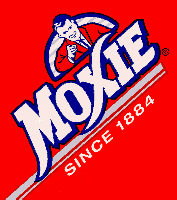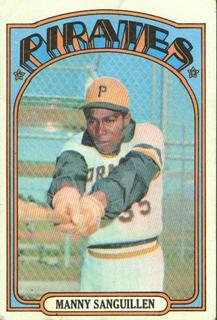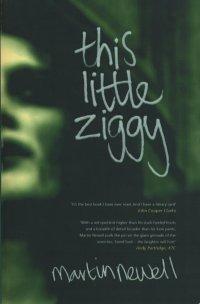Straight to Hell
 I know only two other fans of this movie, my bandmates Mike Frank and Seth Baer, and I've read of a fourth fan somewhere in the UK. That's it. This punk-rock send-up of Sergio Leone spaghetti westerns from director Alex Cox (Repo Man) stars Repo Man alums Dick Rude (who also co-wrote) and Sy Richardson; two of our music heroes, Joe Strummer and Elvis Costello; members of the Pogues; and Circle Jerks bassist (and later pre-show dressing room meal companion) Zander "Snake" Schloss. A pre-celebrity Courteney Love displays early signs of her burgeoning lack of talent. (After seeing this movie upon its release, I'm pretty sure I was the first person in the world to spot her complete lack of talent, but of course, we've got to keep it on the up and up here at Overlooked Gems of My Lifetime.)Don't think I'm recommending a film of subtle insight and emotional resonance. Like Cox's acknowledged cult classic Repo Man, the movie exists primarily for a series of absurd and even lame gags: the cowboys ride Yugos rather than horses, coffee addiction runs rampant among the townfolk, and so forth. A sudden death of an irascible geezer is commemorated by a wholly insincere "He was a great man." But don't just take my word. You've got to see this movie for yourself to appreciate its overlooked greatness. Actually, you may have to see it through the eyes of myself, my two friends, and that English bloke I read about who also digs it.
I know only two other fans of this movie, my bandmates Mike Frank and Seth Baer, and I've read of a fourth fan somewhere in the UK. That's it. This punk-rock send-up of Sergio Leone spaghetti westerns from director Alex Cox (Repo Man) stars Repo Man alums Dick Rude (who also co-wrote) and Sy Richardson; two of our music heroes, Joe Strummer and Elvis Costello; members of the Pogues; and Circle Jerks bassist (and later pre-show dressing room meal companion) Zander "Snake" Schloss. A pre-celebrity Courteney Love displays early signs of her burgeoning lack of talent. (After seeing this movie upon its release, I'm pretty sure I was the first person in the world to spot her complete lack of talent, but of course, we've got to keep it on the up and up here at Overlooked Gems of My Lifetime.)Don't think I'm recommending a film of subtle insight and emotional resonance. Like Cox's acknowledged cult classic Repo Man, the movie exists primarily for a series of absurd and even lame gags: the cowboys ride Yugos rather than horses, coffee addiction runs rampant among the townfolk, and so forth. A sudden death of an irascible geezer is commemorated by a wholly insincere "He was a great man." But don't just take my word. You've got to see this movie for yourself to appreciate its overlooked greatness. Actually, you may have to see it through the eyes of myself, my two friends, and that English bloke I read about who also digs it.
Slovenia
 Business brought Sondra to this little country nestled among Italy, Austria, Croatia, and the Adriatic, and Sondra brought me along to this little country during our glorious year living in Hungary. Always among the pampered pups of the old Soviet Block, Slovenians quickly extracted themselves from the post-communist Balkan conflicts and continued with a culture that combines the sensuality of Italy with the order of Austria.
Business brought Sondra to this little country nestled among Italy, Austria, Croatia, and the Adriatic, and Sondra brought me along to this little country during our glorious year living in Hungary. Always among the pampered pups of the old Soviet Block, Slovenians quickly extracted themselves from the post-communist Balkan conflicts and continued with a culture that combines the sensuality of Italy with the order of Austria.
Moxie
 We've been vacationing in Maine for 15 years, but it wasn't until last year that we were hipped to the New England region's treasured and historic soda, Moxie. That week, I drank a case of Moxie, and we brought another case home with us, cracking open a can now and then through the winter months to mark special occasions. Moxie is the oldest continuously produced soft drink in the US. What's it taste like? It tastes like the America of our forefathers, or at least our Anglo-Saxon ones. Imagine a stronger and less-immediately enoyable birch beer (oh, what an overlooked gem Pennsylvania Dutch Birch Beer is, but that's for another day), a Guinness Irish Stout to Pennsylvania Dutch's Bass Ale. Surely, it's an acquired taste. For what it lacks in immediate pleasure, however, it makes up for with its strong and slow-building aftertaste. Sometimes life gets a little too smooth; Moxie goes down like a fine sandpaper.Moxie is running neck and neck as my signature drink with the Italian soda produced by the excellent San Pellegrino company, Chinotto. That's right, when you think of me living the good life, please think of me as sipping from a tiny bottle of Chinotto or, when I'm in the states, taking manly swigs from a bright orange can of Moxie!
We've been vacationing in Maine for 15 years, but it wasn't until last year that we were hipped to the New England region's treasured and historic soda, Moxie. That week, I drank a case of Moxie, and we brought another case home with us, cracking open a can now and then through the winter months to mark special occasions. Moxie is the oldest continuously produced soft drink in the US. What's it taste like? It tastes like the America of our forefathers, or at least our Anglo-Saxon ones. Imagine a stronger and less-immediately enoyable birch beer (oh, what an overlooked gem Pennsylvania Dutch Birch Beer is, but that's for another day), a Guinness Irish Stout to Pennsylvania Dutch's Bass Ale. Surely, it's an acquired taste. For what it lacks in immediate pleasure, however, it makes up for with its strong and slow-building aftertaste. Sometimes life gets a little too smooth; Moxie goes down like a fine sandpaper.Moxie is running neck and neck as my signature drink with the Italian soda produced by the excellent San Pellegrino company, Chinotto. That's right, when you think of me living the good life, please think of me as sipping from a tiny bottle of Chinotto or, when I'm in the states, taking manly swigs from a bright orange can of Moxie!
Manny Sanguillen
 Manny Sanguillen was a free-swinging, bad-fielding catcher for the early '70s Pittsburgh Pirates, the Roberto Clemente/Willie Stargell-led squad known as "The Lumber Company," an overlooked gem of a baseball team itself. He was surrounded by Hall of Famers and world-class flakes, but Sanguillen's appetite for any pitch that he could reach, his amazing ability to make quality contact, and his peculiar ticks while awaiting the next pitch added to his luster. I once saw him hit two doubles in one game against the Phils: one on a pitch above his head and another on a pitch that practically bounced up to the plate. Among other unusual distinctions, in 1975, Sanguillen and $100,000 were traded to the Oakland A's for manager Chuck Tanner.
Manny Sanguillen was a free-swinging, bad-fielding catcher for the early '70s Pittsburgh Pirates, the Roberto Clemente/Willie Stargell-led squad known as "The Lumber Company," an overlooked gem of a baseball team itself. He was surrounded by Hall of Famers and world-class flakes, but Sanguillen's appetite for any pitch that he could reach, his amazing ability to make quality contact, and his peculiar ticks while awaiting the next pitch added to his luster. I once saw him hit two doubles in one game against the Phils: one on a pitch above his head and another on a pitch that practically bounced up to the plate. Among other unusual distinctions, in 1975, Sanguillen and $100,000 were traded to the Oakland A's for manager Chuck Tanner.
Lost in Music/This Little Ziggy
 In the years following my disappointment with reading the acclaimed Nick Hornby rock novel High Fidelity, a book that I thought worked better in its slightly cheesy Hollywood movie form (despite the horrible segments featuring Lisa Bonet), I was turned onto two lesser-known rock memoirs with little distribution outside the UK that I found much more satisfying, Giles Smith's Lost in Music and Martin Newell's This Little Ziggy. Like High Fidelity, these books detail the love and beauty fueling rock obsessives' frequently pathetic exploits. The books share some overlapping themes with each other, in large part because Smith and Newell were bandmates in Newell's cult-pop band, The Cleaners from Venus. Lost in Music is most similar to High Fidelity, with tales of a young man's move from record lover to nearly-successful musician to contented, music-loving journalist. The book is loaded with commentaries on favorite records, a fair share of lists, and other devices made popular in High Fidelity, but even when Smith is waxing over what I would consider a cheesy single from his record collection, there's never that sense that Hornby can't seem to avoid, that of the smug zealot of semi-hipness. Midway through the book, Smith meets up with Newell, and during his stint with The Cleaners of Venus, he realizes what separates himself from what he considers a true artist like Newell. Really sweet, humble stuff that's too often brushed under the carpet in rock writing.Sweet humility and a great deal of self-deprecating humor are on display in Newell's memoir of his teenage years as an aspiring Glam Rock star. This Little Ziggy is dead-on in its tales of teenage rock rites of passage, from early experiences with rock 'n roll through teenage rebellion, school dropout, girlfriends, drugs, local band success, brushes with near greatness, more drugs, parental reconcilliation, and eventual inklings of one's own artistic voice. I laughed; I cried. Numerous times. This book is presently out of print and pretty tough to find. If you ever come across a copy, snatch it up! Before I leave this post, I must recommend the music of Martin Newell as well, especially The Greatest Living Englishman album.
In the years following my disappointment with reading the acclaimed Nick Hornby rock novel High Fidelity, a book that I thought worked better in its slightly cheesy Hollywood movie form (despite the horrible segments featuring Lisa Bonet), I was turned onto two lesser-known rock memoirs with little distribution outside the UK that I found much more satisfying, Giles Smith's Lost in Music and Martin Newell's This Little Ziggy. Like High Fidelity, these books detail the love and beauty fueling rock obsessives' frequently pathetic exploits. The books share some overlapping themes with each other, in large part because Smith and Newell were bandmates in Newell's cult-pop band, The Cleaners from Venus. Lost in Music is most similar to High Fidelity, with tales of a young man's move from record lover to nearly-successful musician to contented, music-loving journalist. The book is loaded with commentaries on favorite records, a fair share of lists, and other devices made popular in High Fidelity, but even when Smith is waxing over what I would consider a cheesy single from his record collection, there's never that sense that Hornby can't seem to avoid, that of the smug zealot of semi-hipness. Midway through the book, Smith meets up with Newell, and during his stint with The Cleaners of Venus, he realizes what separates himself from what he considers a true artist like Newell. Really sweet, humble stuff that's too often brushed under the carpet in rock writing.Sweet humility and a great deal of self-deprecating humor are on display in Newell's memoir of his teenage years as an aspiring Glam Rock star. This Little Ziggy is dead-on in its tales of teenage rock rites of passage, from early experiences with rock 'n roll through teenage rebellion, school dropout, girlfriends, drugs, local band success, brushes with near greatness, more drugs, parental reconcilliation, and eventual inklings of one's own artistic voice. I laughed; I cried. Numerous times. This book is presently out of print and pretty tough to find. If you ever come across a copy, snatch it up! Before I leave this post, I must recommend the music of Martin Newell as well, especially The Greatest Living Englishman album.





